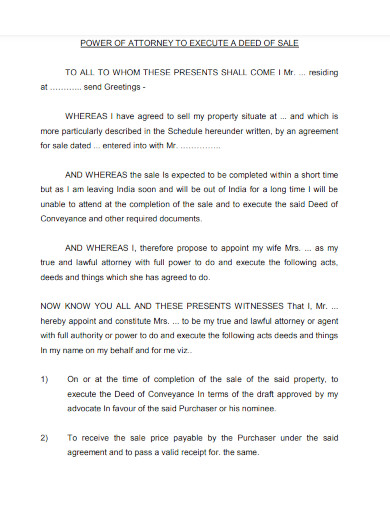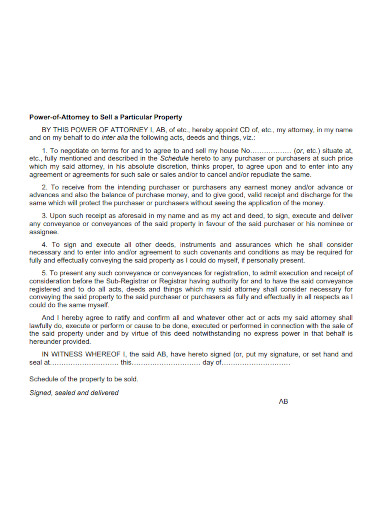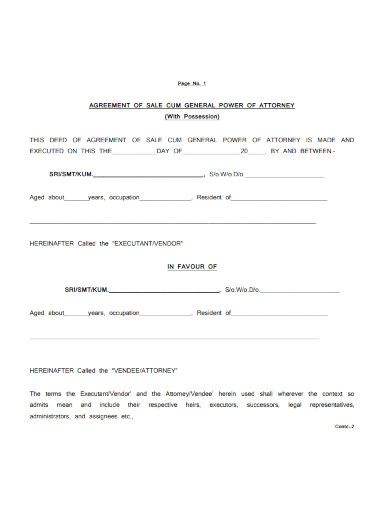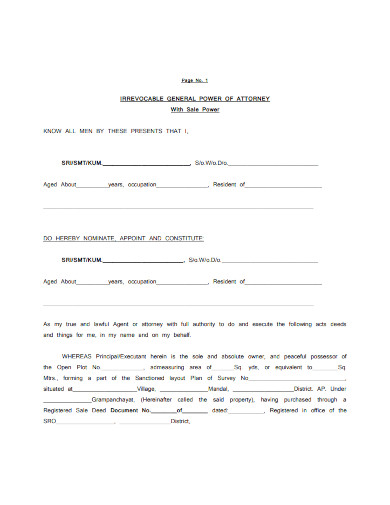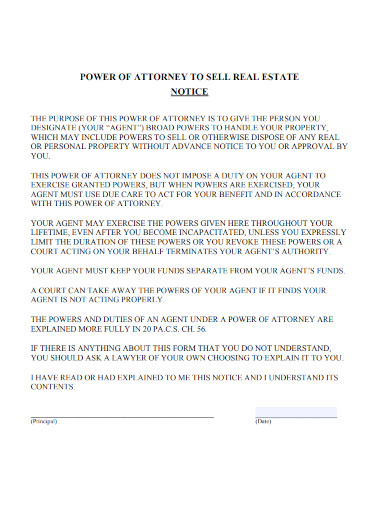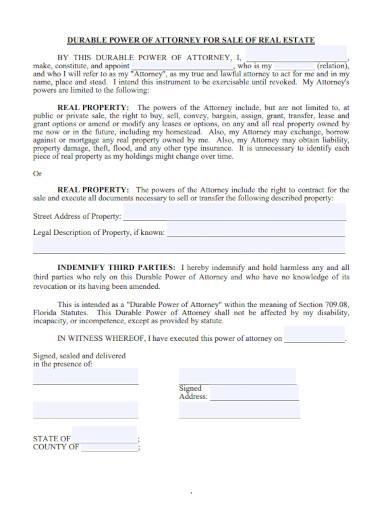Having a power of attorney is a common legal tool that can be used when the principal is unable to sign important documents because of an illness, disability, or incapacity. If the principal wishes to revoke or terminate the power of attorney, they can do so by submitting a written notice of revocation or termination to the court; if the agreement is deemed invalid by a judge, the power of attorney can be revoked as well. There’s a chance that the consent is no longer valid if the couple who signed it divorces.
There are times when an individual’s ability to sign important documents may be hindered by a short- or long-term illness or disability. For example, the principal can take back control of his or her own affairs, or a court can declare a power of attorney agreement invalid. The agent can also be unable to perform their duties, which means the power of attorney is terminated. An agent’s power of attorney can be revoked if the agent is unable to fulfill the responsibilities laid out in the agreement. The consent may no longer be valid if both the principal and the agent want to end their marriage.
5+ Sale Power of Attorney Samples
1. Deed of Sale Power of Attorney
2. Power of Attorney to Sell Particular Property
3. Agreement of sale General Power of Attorney
4. Irrevocable General Sale Power of Attorney
5. Power of Attorney to Sell Realestate Notice
6. Durable Power of Attorney Sale of Real Estate
What Is a Sale Power of Attorney?
With a power of attorney, an agent can represent a principal in any situation where state law permits it, as long as they are authorized to do so. The agent may be given the authority to manage the principal’s bank accounts, sign checks on the principal’s behalf, sell property, manage assets, and file taxes on the principal’s behalf in this type of arrangement. When selling a property, the real estate agent may also be responsible for managing the assets.
Writing a Sale Power of Attorney
The mere fact that you signed a letter of power of attorney does not preclude you from acting on your own behalf. Both of these options are still open. Whatever your Agent’s recommendation, it is ultimately your decision whether to proceed with a project or not. Consult a lawyer before attempting to write a power of attorney letter. This will save you both time and effort in the long run. Following the steps outlined in the following paragraphs, you can write the letter:
- Come up with a draft
To begin, make a list of all the abilities your Agent is capable of possessing. The first step is to come up with a strategy. As each account, property, and transaction is unique, it is imperative that you clearly communicate this information to your Agent. Because your Agent will be taking care of them, this is a good thing. - Make decisions about springing powers
Whether or not it can return to its natural habitat is the most important factor. These abilities can only be used if certain events or conditions are met. Before the Agent can make use of these powers, both of these events must occur. No action on your behalf can be taken legally until the Agent has the power to do so. Even if the form of power you’re using doesn’t necessitate a provision for this power, your letter will still work once you’ve signed it. - Choose your agent and successor
When writing this letter, the most important decision you must make is who will represent you in court. You must have complete faith in the Agent you choose in order to proceed. You should always have a backup plan in place in the event that your first choice is unavailable. - Add the expiration date
When writing a letter to your Agent, be sure to include a time limit for the permission you’re granting. However, “durable power of attorney” ensures your wishes are carried out even in the event of your death. It is possible to have an impact on your life even if you are paralyzed. Whatever you write in your letter, keep in mind that your influence will end the moment you pass away. - Finalize the document
Once you’ve gathered all of the necessary information, you can begin writing your letter. Be sure to communicate the document’s content in an understandable manner when doing so. The letter you send should include the full names of all three parties in order to avoid any confusion. It is necessary to include the date on which the letter was written.
FAQs
What is the difference between the power of attorney and a letter of authorization?
In spite of their disparate origins, these two letters share many similarities. An authority letter gives you the authority to act on behalf of someone else. Once the tasks on the authority letter have been completed, the person who received it must seal it. In contrast, the assignee of a power of attorney authorization letter receives broad authority.
Who can override power of attorney?
Allows one person to act on behalf of another person (the agent) through a legal document known as a POA (the principal). The power of attorney can be revoked at any time by the person who has been granted it while they are still of sound mind.
What is the best form of power of attorney?
Wide or narrow power of attorney can be written. A general power of attorney gives the agent broad authority to act on the principal’s behalf. Your caretaker should have as much freedom as possible if you want this to be the best option for you.
A power of attorney letter gives someone else the authority to act on your behalf if you are unable to do so for a variety of reasons. Having more than one person’s signatures on bank accounts, properties, or brokerage accounts necessitates a power of attorney. No matter how many names there are on the account, it doesn’t matter. If you ever find yourself in a situation where you need a letter of authorization for a power of attorney, use any of the ones listed here.
Related Posts
FREE 5+ Lease Power of Attorney Samples in PDF
FREE 10+ Property Power of Attorney Samples in PDF | MS Word | Google Docs
FREE 6+ Special Power of Attorney Samples in PDF
FREE 5+ Business Power of Attorney Samples in PDF
FREE 10+ Health Care Power of Attorney Samples in PDF | MS Word | Google Docs
FREE 6+ Company Power of Attorney Samples in PDF
FREE 5+ Affidavit of Desistance Samples [ Case, Settlement, Claim ]
FREE 10+ Affidavit of Funeral Expenses Samples [ Claim, Cost, Benefits ]
FREE 6+ Affidavit of Translation Samples in PDF
FREE 2+ Supporting Deposition Samples in PDF | MS Word
FREE 9+ Sample Orders to Appear in PDF
FREE 5+ Mortgage Deed Samples & Templates in PDF
FREE 13+ General Power of Attorney Templates in PDF | MS Word
FREE 19+ General Affidavit Samples and Templates in PDF
FREE 9+ Patent Assignment Samples and Templates in PDF
